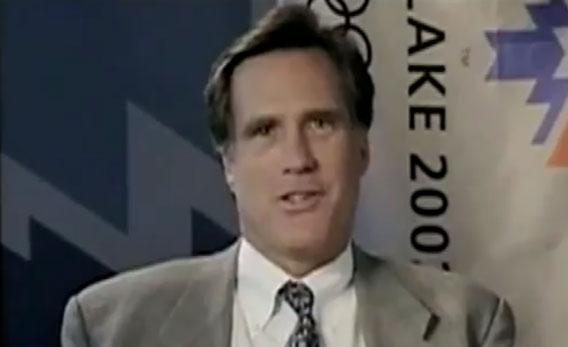A new ad from a liberal advocacy group shows Mitt Romney speaking in French while intentionally mistranslated subtitles make the case that he’s a flip-flopper. Surrogates for George W. Bush accused John Kerry of “looking French” during the 2004 campaign. Why do Americans hate the French?
Some of it comes from the British. From the first years of the French Republic, Americans depicted France as everything the United States was not and did not wish to become. Alexander Hamilton said, “There is no real resemblance between what was the cause of America and what is the cause of France.” (He identified the former as liberty and the latter as licentiousness.) Still, much of our anti-French bias can be traced back to merry England, which had been fighting its cross-channel rival for centuries. Today, when American critics link a politician to France, they are exploiting a variety of long-held stereotypes, some of which are no longer accurate, and many of which were unfair to begin with. Nevertheless, the perceptions seem unshakeable. Here are five of the most common anti-French sentiments, with a brief history of each:
The French are effeminate and cowardly. Americans inherited this stereotype from their British forebears. In the late 16th century, one Englishman derided the French language as “delicate but ouer nice, as a woman scarce daring to open her lipps for feare of marring her countenaunce.”
The caricature solidified during World War II, after German forces swept across the Maginot line and into Paris in a matter of weeks, and saw a resurgence when Jacques Chirac opposed the invasion of Iraq in 2003.
Colin Powell accused the French Foreign Minister Hubert Védrine of “getting the vapors,” and John McCain said, “They remind me of an aging movie actress in the 1940s who is still trying to dine out on her looks but doesn’t have the face for it.” The most famous modern expression of this stereotype may come from The Simpsons’ Groundskeeper Willie, who in a 1995 episode called the French “cheese-eating surrender monkeys.”
The French are corrupt and lack idealism. Shortly after our independence, Americans were shocked by the XYZ affair, in which French diplomats tried to sell their influence to American envoys. Over time, Americans became so convinced of French corruption that they would believe even the most outrageous myths. During World War II, Hearst newspapers reported that the French government charged American soldiers rent for their battle trenches. Returning U.S. forces complained that French hoteliers and merchants had cheated them. Proponents of the 2003 Iraq invasion played heavily on this perception, arguing that Saddam Hussein had bought Chirac off with oil vouchers.
The French are too theoretical. There’s an old joke (PDF) in Washington about an international committee watching a new invention at work. While everyone else is impressed, the French commissioner worries, “It obviously works in practice, but will it work in theory?” The stereotype of the chin-scratching, navel-gazing Frenchman seems to have come over from Britain. In his 1793 book The Example of France as a Warning to Britain, Englishman Arthur Young celebrated the British “constitutional abhorrence of theory, of all trust in abstract reasoning.” It’s one of several similar statements, some of which date back to the mid-17th century.
France is elitist. The image of a snobbish ruling elite is most famously located in Marie Antoinette’s suggestion that the poor could ameliorate a bread shortage by consuming pastries. There’s also the apocryphal pronouncement by Louis XIV: “L’Etat, c’est moi (“I am the state”). Today, many senior government officials in France graduate from a single school, the École Nationale d’Administration. When American politicians accuse their opponents of having French sympathies, it’s usually code for elitism. John Kerry declined to give interviews in French during his 2004 campaign, and George H.W. Bush also avoided speaking French. Although both men are thought to speak the language relatively well, they were also dogged by the allegations of elitism.
France is collectivist, and doesn’t respect liberty. There’s a pointed contrast between the American ideal of “life, liberty, and the pursuit of happiness” and the French motto “liberté, égalité, fraternité.” The French project has always put a strong emphasis on togetherness and a coherent political, social, and economic culture. Often, in policy debates, accusing a proposal of French-ness is a way of calling it socialist.
Got a question about today’s news? Ask the Explainer.
Explainer thanks Justin Vaïsse of Brookings.
